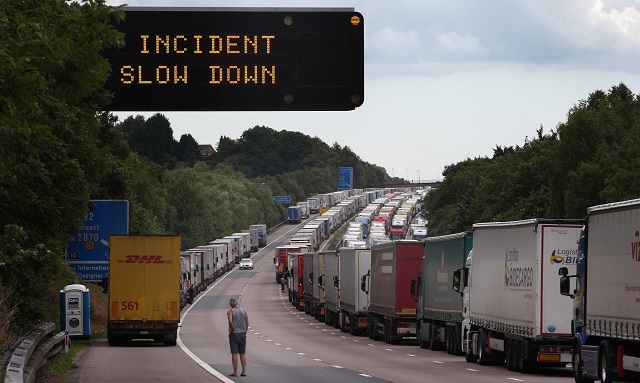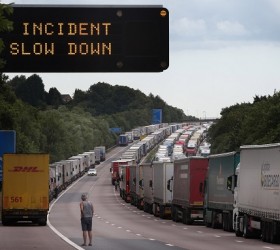Promising progress on reducing the number of disruptions to cross-Channel services and tackling the migrant crisis in the Calais area could be undermined by a resumption of industrial action, the Freight Transport Association has told Immigration Minister James Brokenshire at a meeting held in Calais this afternoon.
 FTA was meeting with the Home Office Minister to be briefed first-hand on the outcome of talks between Home Secretary, Theresa May and French Interior Minister, Bernard Cazeneuve held in France today. The two governments have announced the formation of a joint command to tackle people trafficking as well as further increases in physical security and British support for the French government to begin processing asylum claims at sites away from the Calais area.
FTA was meeting with the Home Office Minister to be briefed first-hand on the outcome of talks between Home Secretary, Theresa May and French Interior Minister, Bernard Cazeneuve held in France today. The two governments have announced the formation of a joint command to tackle people trafficking as well as further increases in physical security and British support for the French government to begin processing asylum claims at sites away from the Calais area.
James Hookham, FTA’s Deputy Chief Executive, who was at the meeting, said: “We are pleased with the progress that has been made and we support the measures that have been announced. Our members have reported a marked reduction in disruption to services over the past three weeks. But much of the progress could be undermined by any future direct action by strikers in Calais, creating the ideal conditions for migrants to attempt entry into trucks and stow away to Britain. Calais must become a strike-free zone, to fully protect drivers and their vehicles.”
The four days of strikes by MyFerryLink workers and subsequent ‘wild cat’ demonstrations in June and July caused complete paralysis of services and lengthy queues for trucks, making them ‘sitting ducks’ for would-be stowaways in the Calais area. It also caused Operation Stack to be implemented on the M20 in Kent for 28 days in the past two months, costing British operators over £21 million, according to FTA calculations.
James Hookham added: “A key concern for FTA members now is that there is not a repeat of the industrial action we saw last month. The dispute by former MyFerryLink workers has not been fully resolved, and there is a risk that the issue could resurface in the coming weeks. The overall cost of such action is crippling to the truck operators and cargo owners and cannot be allowed to happen again.”
James Hookham concluded: “We were also pleased to hear of joint efforts to begin documenting and processing migrants so as to legitimise those with a genuine asylum claim. The sight of displaced and stateless people being allowed to disrupt freight traffic and intimidate drivers in the course of their jobs is clearly an unacceptable situation in a modern western democracy. Today’s announcement of British support to help the French authorities process these claims at sites away from the Calais region is a positive development and begins efforts to prevent the Calais crisis rather than just cure it.”




